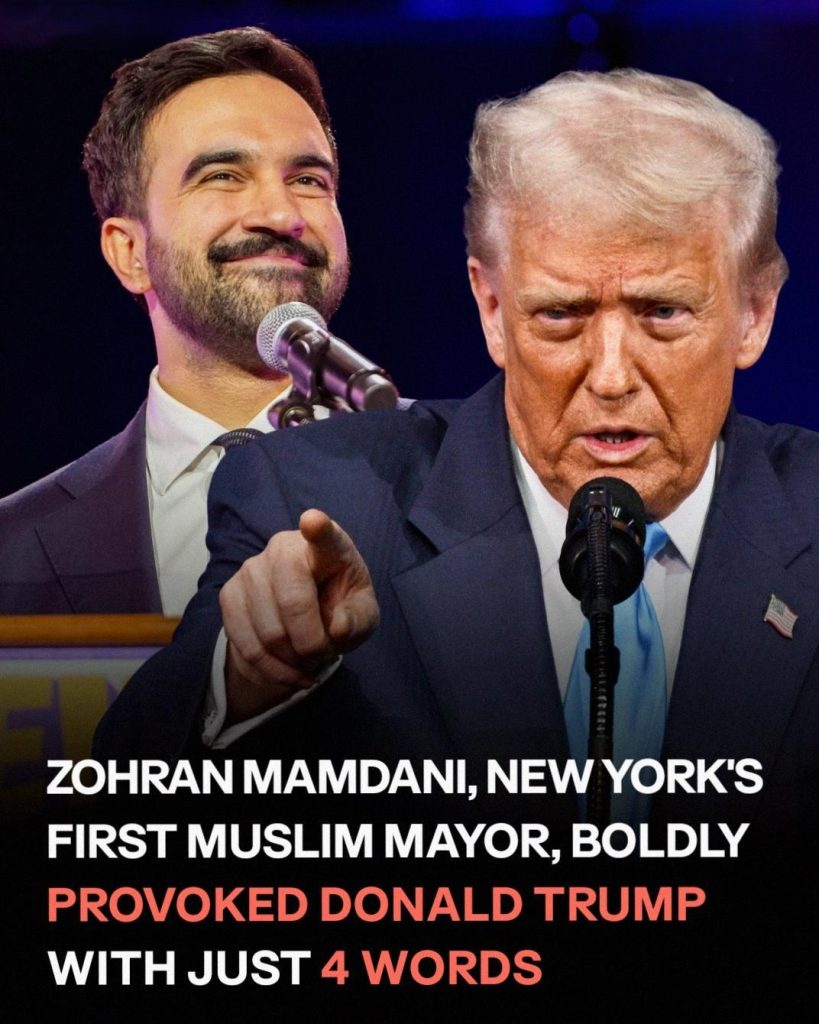New York chose change—and did it decisively. On November 4, 2025, Zohran Mamdani, a 34-year-old democratic socialist, was elected mayor, defeating former Governor Andrew Cuomo and Republican Curtis Sliwa in a race that reshaped the city’s political map. By Wednesday, November 5, with most ballots counted, Mamdani held 50.4% to Cuomo’s 41.6%, with Sliwa at 7.1%. More than 2,000 people packed a Brooklyn celebration as New Yorkers marked a series of firsts: the city’s first Muslim mayor, its first South Asian mayor, and its youngest leader in over a century.
He took the stage to a roar and opened with a line that felt equal parts homage and promise:
“The sun may have set over our city this evening, but as Eugene Debs once said, ‘I can see the dawn of a better day for humanity.’”
He framed the victory as belonging to ordinary New Yorkers, not power brokers. After a brief nod to Cuomo—adding he hoped to never speak his name again—Mamdani thanked the coalition that lifted him: his parents, his wife, Rama Sawaf Duwaji (whom he first met on Hinge, as he told a podcast), his staff, and the volunteers who built a campaign neighborhood by neighborhood.
Then came the agenda. He promised an administration of doers, not excuse-makers: a rent freeze for two million rent-stabilized tenants, faster and free buses, universal child care, more teachers, and a comprehensive plan to stabilize NYCHA. He outlined a dedicated department to address mental health and homelessness—two crises that spill into every corner of the city. And he pledged to defend immigrant New Yorkers, people of color, transgender communities, and both Jewish and Muslim New Yorkers from rising hate.
The speech also carried the confrontation many expected. He aimed straight at President Donald Trump—who had branded him a “communist” and threatened to cut federal funding if he won—and answered with a challenge and a vow:
“Donald Trump, since I know you’re watching, I have four words for you: turn the volume up!”
“New York will remain a city of immigrants—built by immigrants, powered by immigrants, and as of tonight, led by an immigrant… So hear me, President Trump, when I say this: to get to any of us, you will have to get through all of us.”
He didn’t spare his own party either, arguing too many working people had been left behind and insisting that must change. He closed on ownership and solidarity:
“New York, this power, it’s yours. This city belongs to you. Thank you.”
Mamdani’s path to City Hall felt improbable until it wasn’t. Born in Uganda, raised in Cape Town, and brought to New York at seven, he graduated from Bronx Science and studied Africana Studies at Bowdoin before becoming a housing counselor. Naturalized in 2018, he won three terms in the State Assembly. His parents—Columbia professor Mahmood Mamdani and acclaimed filmmaker Mira Nair—rarely featured in his pitch; his story centered on tenants, riders, vendors, and workers.
Opponents tried to weaponize his past—circulating shirtless stills from an old music video from his “Mr. Cardamom” era—but it backfired. Aides said it humanized him, showing he could absorb embarrassment and keep moving, a useful trait when your campaign lives in the cold on subway platforms and sidewalks.
His team’s digital strategy turned him into a fixture on feeds across the five boroughs. He leaned into youth outreach, multilingual organizing (Urdu, Bangla, Spanish, Arabic), and viral explainers. One breakout moment coined “Halalflation,” highlighting how broken permit systems and rising costs squeeze street vendors and drive up the price of what should be New York’s most affordable meals. The message resonated far beyond TikTok: affordability wasn’t a talking point; it was the point.
Money and muscle lined up behind Cuomo, but the onslaught of attack ads failed to slow a race that increasingly looked like working-class New Yorkers versus the city’s elite. Mamdani surged through June’s primary and never looked back, converting skepticism into turnout and turning a long-shot bid into a mandate.
Now comes the test. His platform—rent freeze, universal child care, free transit, NYCHA renewal, stronger labor rights—will demand both budget discipline and political coalition-building in Albany and Washington. His promise to pursue abusive landlords and rein in tax breaks for billionaires ensures resistance from powerful interests. But the coalition that elected him expects delivery, not deferral.
In the end, his victory felt personal to many New Yorkers who saw their own pressures reflected back at them: rent due, groceries up, commutes slow, neighbors squeezed. The mayor’s office has a new face—and a new blueprint. Whether Zohran Mamdani can translate a sweeping win into tangible relief will determine how this chapter is remembered: as a historic first, or as the start of a better day New Yorkers can actually feel.


